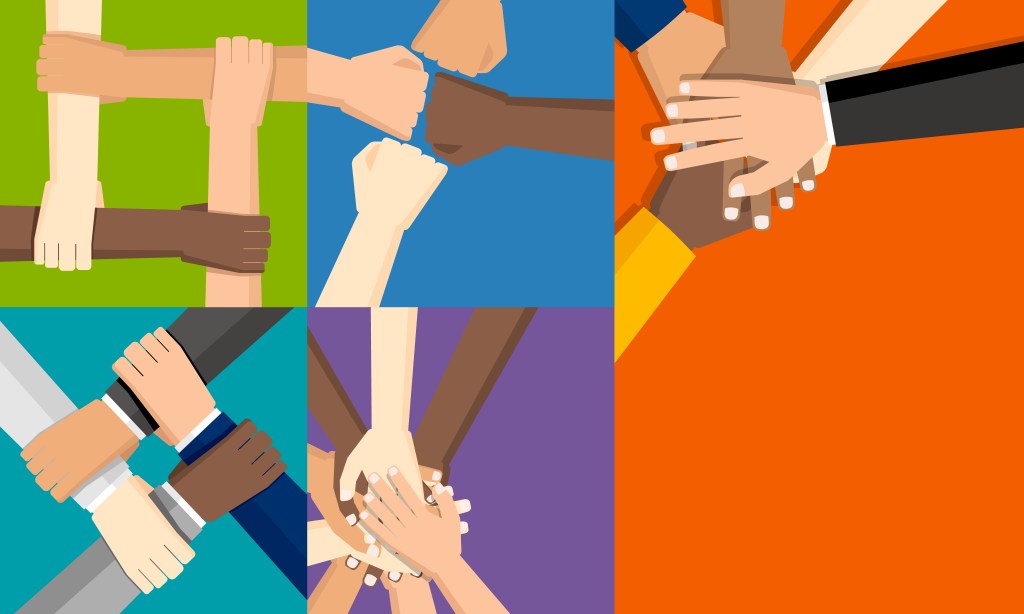Tamar Lucien
Birthday cakes, gift cards, free lunches, snacks, movie tickets, and other perks are generously bestowed on employees to celebrate life’s happy moments. This is an improvement from the industrial approach to management, but can we go deeper for our work-family members?
Life’s darker moments hold the greatest opportunity to exemplify a genuine and caring 21st-century workplace culture. One which fosters empathy and camaraderie. Employee turnover is highest when employees take leave, claim FMLA, or use PTO. According to Global Studies, 79% of employees report their reason for quitting was simply due to feeling unnoticed (lack of appreciation).
Appreciation for your employees is best demonstrated as an act of kindness in moments that really matter, like the loss of a family member. Acknowledging that someone great is gone, instead of ignoring the uncomfortable aspects of grief, is a valuable way to embed empathy into your workplace culture.
Recently, while working with a mid-sized (500+ employees) tech company, I asked what they were doing to support employees during the negative life moments. The HR Director replied, “um, nothing really”.
Once realizing how crappy that sounded, another executive countered her by saying he sent an employee a t-shirt and card after a miscarriage. I later learned that the employee he was referring to had been with the company for over 5 years, so it’s safe to assume that she had a couple of company swag t-shirts in her collection prior to getting one as a get well gift.
Even in the largest and most notable companies, where a variety of employee amenities and benefits are offered, the concept and practice of empathy is often neglected. Perhaps you haven’t come across such extreme examples of indifference in your workplace, but you may have participated in signing a generic condolences card or chipping in for some flowers.

We often don’t know what to say or do when a person experiences a loss, so we either stay silent or we resort to what we have seen everyone else do before us. We go along to get along because the topic of death and grief is uncomfortable. Uncomfortable, but inevitable.
In fact, it sometimes isn’t until someone in upper management experiences a devastating loss that policies change. Such was the case with Chief Operating Officer of Facebook, Sheryl Sanberg, who lost her husband suddenly back in 2015. This prompted Facebook to initiate a bereavement policy which included up to 20 days of paid leave in the event of a family member’s death.
At most organizations, when an employee is experiencing a negative life event, things usually play out like this:
Allen is an engineer at a big tech company. Allen leaves work abruptly because he received some bad news about his mom. Later, he contacts his manager to inform her that he won’t be in tomorrow because his mom has passed away. The manager utters a typical and clinched response, “Take all the time you need.” But the manager doesn’t mean it. Per policy, Allen only has 3 days of paid time off. The manager then immediately spreads the news to the team via email. The team members subsequently circulate the news all around the department. However, the most important department that should be alerted of this news, Human Resources, is unaware that Allen has experienced a traumatic life event. Allen has lost someone great in his life and no one at work seems to care. Upon Allen’s return to work, he struggles with feelings of confusion and major depression. Allen has become a disengaged employee who will always remember how his company treated him during this difficult time in his life.
Don’t let this be the experience of your employees. It is actually during times of trauma or negative life events that an employer can show up for an employee in an innovative way. Even if your company is unable to offer 20 days of leave, there are other small, but very impactful and actionable empathy-based best practices that support employees processing grief or trauma.
In the words of the great Maya Angelou, “at the end of the day, people won’t remember what you said or did, they will remember how you made them feel.” Your employees will not forget their feelings being unacknowledged during loss, caregiver stress, illness or burnout. You can change this by creating better policies and a company culture that directly address the process of grief.
Grief at work can show up in many, not so obvious, ways. For some, going back to work could be a helpful distraction that allows them to cope. For others, they may not feel ready to go back to work but need to due to career and financial obligations.
In both instances, the individuals are silently suffering and often times put being professional at work above just being human. The grieving employee may appear to be uninterested in collaborating with others, miss deadlines or even express unintentional negative emotions towards customers and co-workers. Accept this and plan for it.
Every traumatic experience is different and every person is different, however, a common thread in the grieving process is spirituality and religion. In helping companies help grieving employees in times of loss, and for the healing process that follows, rarely do I see them honoring the person’s religion or spiritual beliefs.
It is understandable that a company might have to trend a fine line between caring and being too personally invasive. However, nearly 80 percent of Americans say they practice some type of religion or spiritual belief. Empirical studies of many groups dealing with major life stressors such as natural disaster, illness, loss of loved ones, divorce and serious mental illness show that religion and spirituality are generally helpful to people in coping.
Leading expert in the psychology of religion and spirituality, and former American Psychological Association Handbook Editor-in-Chief, Dr. Kenneth I. Pargament, says that there are scientific reasons to be more sensitive to religion and spirituality. Employers should recognize a persons’ spiritual, cultural and religious beliefs as it relates to personal life events.
Grief is never over, people move forward with it, not past it. However, it is in management’s power to adjust workplace policies to help. Make time off for grieving periods more flexible and based on the situation rather than a standard set of days.

Healing from grief may take more days than a company can reasonable offer, but employees may need the space to ease back into a full workload schedule. Offer wellness checks even several months after an employee’s negative life event.
Proactively prevent rumors and misinformation in order to protect employee privacy. Set expectations during on-boarding of the bereavement policy and make sure policies specific to life events are readily available to minimize confusion with the employee and within the team during the immediate aftermath.
Reevaluate the need for corporate blank policies that steer clear of honoring the individuals’ beliefs. As a practice, require managers to communicate with HR immediately after becoming aware of any negative life incident. Create a plan that will automatically go into motion so the company can offer support.
I’ve gained unique insights from years of partnering with companies to send care kits when employees need it the most. If your organization or team decides to send a gift, my advice is to focus on products and resources for healing or positive coping.
Helping someone gain a positive outlook even after a negative life event has been shown to promote better-coping skills, reduce depression, and improve overall physical health. Be mindful that any care packages or gifts should be sent to the home for employee privacy. Here are some meaningful tools that are known to help with mental health for people experiencing trauma.
Notebook: Therapeutic journaling is the process of writing down thoughts and feelings about personal experiences. Promoting optimism and emotional expression has been found to be good for mental health and recovery from traumatic life events.
A staple wellness tool in our kit is our Notebook of Positive Aspects. It’s a small journal that allows one to write down their thoughts and feelings when they are ready.
Small succulent plant: Counterintuitively, sending flowers is not helpful to recipients’ emotional healing process. Plants, on the other hand, are longer-lasting, represent life and bring positive energy. Studies have proven that indoor plants improve concentration, productivity (by up to 15 percent), reduce stress levels and boost your mood
Humor: When someone we know is grieving we oftentimes feel as though the matter is too serious to encourage laughter or smiling. In many cultures, humor and laughter are used to remember loved ones.
Laughter can be medicine for the soul. Ask questions about the person who has passed and listen to funny stories if shared. Death can also be a celebration of life.

Open when you need a little strength envelope: This one is my personal favorite. “Open When” letters are simple, heartfelt little reminders that can encourage anyone of any age or background. I have even seen grown adults burst into tears upon reading one.
If sending a personal note, avoid overused words like, “sending my condolences”. Instead, offer thoughtful words that express your appreciation for who they are or what he or she has done for you and the company. And because its an envelope, you can include a little trinket.
Here’s an example of a handwritten note:
Dear Allen, Although we all grieve differently, being human is one thing we have in common. Our trials, our sorrows, and our grieves develop us. We believe in your strength and we send our hearts to you and your family. Warmly, Your TechCo Family
Social support has a very real effect on our health, including our longevity (Ozbay et. al, 2007). Our physical and mental health generally improves when we feel like part of a community and declines when we feel isolated.
Grief can be isolating for both the griever and co-workers because people do not know how to respond to the event or connect when the person comes back to work. Employees don’t always want to leave their company in order to process grief or trauma, but sometimes they are unable to continue if they hold feelings of being unappreciated, neglected and unnoticed by their boss or team, compounding their despair.
Building a company culture that supports employees through painful moments in life requires all managers and team members to follow empathic, situational based policies that support healing. Sometimes our greatest leadership opportunities are in the last place we look, such as when someone great is gone, because that’s when we’re called to care for each other as human beings.































Comment